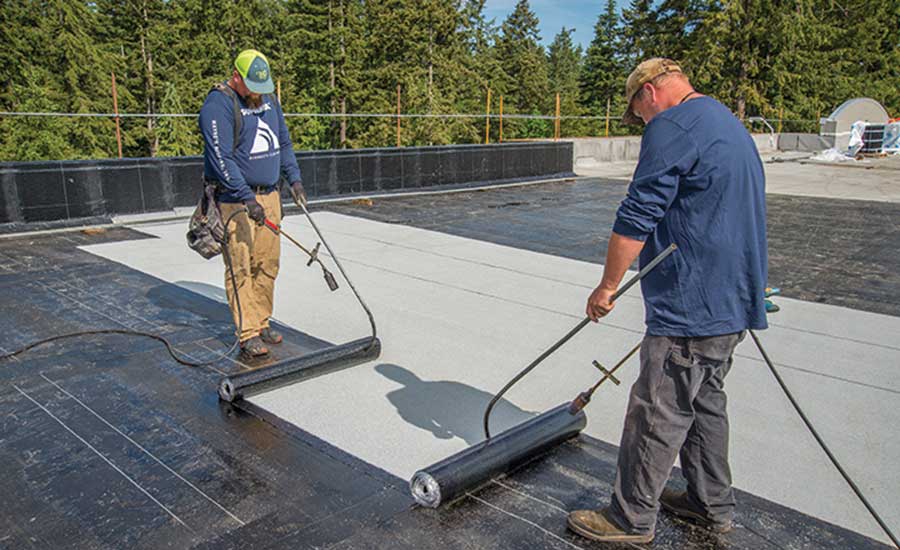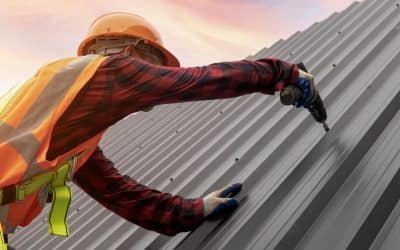
In the lifespan of your building, installing a new roof, or conducting repairs or restoration is one of the big ticket investments that you may have to make. Broadly speaking, good quality roofs are designed and built to last for several decades if there are no intervening weather crisis events, and provided you give the right care and maintenance.
There are several aspects to a roof renovation, restoration or replacement project and it is important to get things perfect, right from the word go. Find more information and get resources regarding various types of commercial roofing jobs at First Class Roofing. They do major commercial jobs in Melbourne and have over 20 years experience in the industry.
Hazards of Choosing The Wrong Roofer
To save a few dollars, get the job done faster, or use less expensive materials, you may accept the lowest bid, but in the long run, cheapest is not always the best. Work quality and experience do come at a price.
You could end up with a contractor who does not have the necessary licenses, permits, worker’s compensation papers and insurance to do this work. You will be legally and financially liable for injuries or damages to the structure that occur during work. Unqualified and inexperienced roofers may produce poor quality work, leading to cracks, leakage and structural damage. You will have to pay from your pocket for these.
Many building owners contract with freelance roofers by way of word of mouth. The roofer may be a friend of a friend, or someone’s relative or someone you heard about in your local hardware store. Unless you check the person’s references thoroughly, it’s risky to employ such a roofer. There is no accountability or recourse in case of problems.
Inexperienced roofers may not stick to deadlines, and this can throw the project budget completely off track. Some of them are freelancers who juggle several projects at a time, so you may not get a firm commitment from them. If they don’t have a fixed address or office, a valid Australian Business number, connecting with them could be a problem in case of an emergency.
There are safety, privacy and security issues in hiring an unfamiliar roofer, with a huge risk of fraud, especially if you have been lured by large discounts and unrealistic deals.
Commercial vs Residential Roofing
Before you select a roofing contractor for your commercial building, know the difference between commercial and residential roofs.
Commercial roofs are those that are atop factories, apartment blocks, office blocks, business centers, hotels, restaurants, warehouses or public buildings used by many people such as educational institutions, hospitals or government buildings. These roofs are typically flat and cover a larger area. They have to accommodate HVAC systems, machinery, smokestacks or even a helipad in some cases. Hence they are heavier and need much more maintenance.
Residential roofs are usually smaller, more focused on design and may be pitched differently, have more vents, skylights and insulation, and they may be tiled with shingles.
Since commercial roofs are usually flat, there is a greater chance of water and snow accumulation, so they need to be more load-bearing. Pitched residential roofs have an internal wooden or metal framework, with a protective underlayer over which shingles or asphalt is laid. The installation process for both kinds of roofs is very different.
Residential roofs may not require as much care as commercial ones, and the type and cost of maintenance are different.
The materials used may be similar but of different quality and quantity. Most importantly, contractors tend to specialize in one kind of roof and it’s important that you confirm their experience in commercial roofing before signing them up.
Choosing The Right Commercial Roofer
Knowing the important differences between residential and commercial roofers is the first step in choosing the right one for your commercial roofing project.
Generally, you should start looking for a commercial roofer before you really need one. When an emergency or crisis happens, you will be under tremendous pressure to get the job done fast and this could be a recipe for disaster. It’s wise to have a few reliable candidates that you have thoroughly researched and are confident about.
Check on their experience, qualifications, certifications and level of expertise. Some of them specialize in a certain type of commercial building so you can confirm that they have worked on projects like yours.
Documentation is the most important aspect of commercial roofing contractor hire. They must have the required, valid licenses and permissions to do this work, to work at heights, in your locality and they need a construction industry card, licenses to handle a variety of roofing materials, and knowledge of building codes in your area.
Ensure that you have compared prices across a few candidates and avoid being lured by cheap deals and discounts. Read reviews, talk to former clients of the roofer and visit a few of their projects if possible. Apart from work quality, check whether the roofer is trustworthy, reliable, sticks to deadlines, and has good communication skills.
You should be able to open a line of regular communication with them via mobile phone, landline or email. Choose a local contractor with a street address and one who has done similar work in the area.
Make sure that you draw up a detailed contract that gives all the necessary details such as the entire scope of work, materials to be used, cost of materials, details of the labor and number of workers required, along with their qualifications and licenses.
The contract should clearly spell out the timeline for the project, start and dates, along with recourse and penalty clauses for delay or poor quality work and materials. The payment terms must also be clearly mentioned, and if the contract specifies stagewise payments, the dates must be noted.
It’s a good idea to check with your own insurer before you draw up a contract with a roofer, especially if it’s for emergency repairs. This makes it clear about what work is covered and what’s not. Your insurer will sometimes recommend a trustworthy contractor.








